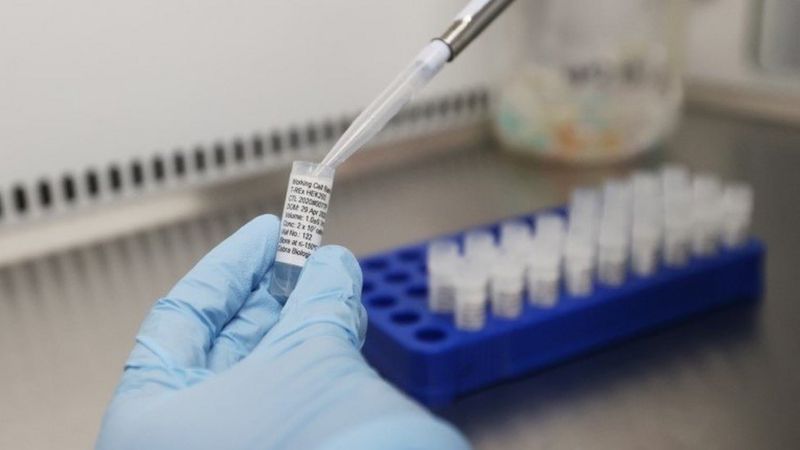 The UK is pushing ahead to be the first nation to carry out "human challenge" studies where up to 90 healthy people will be deliberately exposed to Covid
The UK is pushing ahead to be the first nation to carry out "human challenge" studies where up to 90 healthy people will be deliberately exposed to Covid
The UK is pushing ahead to be the first nation to carry out "human challenge" studies where up to 90 healthy people will be deliberately exposed to Covid.
The trials, which could begin in January, aim to speed up the race to get a Covid-19 vaccine.
The government is putting £33.6m towards the ground-breaking work.
Safety will be a number one priority, experts insist. The plans will need ethical approval and sign off from regulators before they can go ahead.
Human challenge studies provide a faster way to test vaccines because you don't have to wait for people to be exposed to an illness naturally.
Researchers would first use controlled doses of the pandemic virus to discover what is the smallest amount that can cause Covid infection in volunteers aged 18 to 30.
These human guinea pigs, who will be infected with the virus through the nose and monitored around the clock, have the lowest risk of harm due to their young age and good health.
Next, scientists could test if a Covid vaccine prevents infection.
Lead researcher for the project Dr Chris Chiu, from Imperial College London, said: "My team has been safely running human challenge studies with other respiratory viruses for over 10 years. No study is completely risk free, but the Human Challenge Programme partners will be working hard to ensure we make the risks as low as we possibly can."
Prof Peter Openshaw, co-investigator on the study and Director of the Human Challenge Consortium, said deliberately infecting volunteers with a known human pathogen was "never undertaken lightly".
"However, such studies are enormously informative.
"It is really vital that we move as fast as possible towards getting effective vaccines and other treatments for COVID-19."
There are more than a hundred Covid vaccines being developed around the world and several front-runners already in the final stages of testing, including one from Oxford University.
Deputy Chief Medical Officer Prof Jonathan Van-Tam said: "For the many vaccines still in the mid-stages of development, human challenge studies may help pick out the most promising ones to take forward into larger Phase 3 trials.
"For vaccines which are in the late stages of development and already proven to be safe and effective through Phase 3 studies, human challenge studies could help us further understand if the vaccines prevent transmission as well as preventing illness."
The first stage of the project will be delivered by a partnership between Imperial College London, the Royal Free Hospital's specialist and secure research unit in London and a company called hVIVO.
Volunteers will be monitored for up to a year after taking part in the study to check for any side effects.
By Michelle Roberts
Health editor, BBC News online